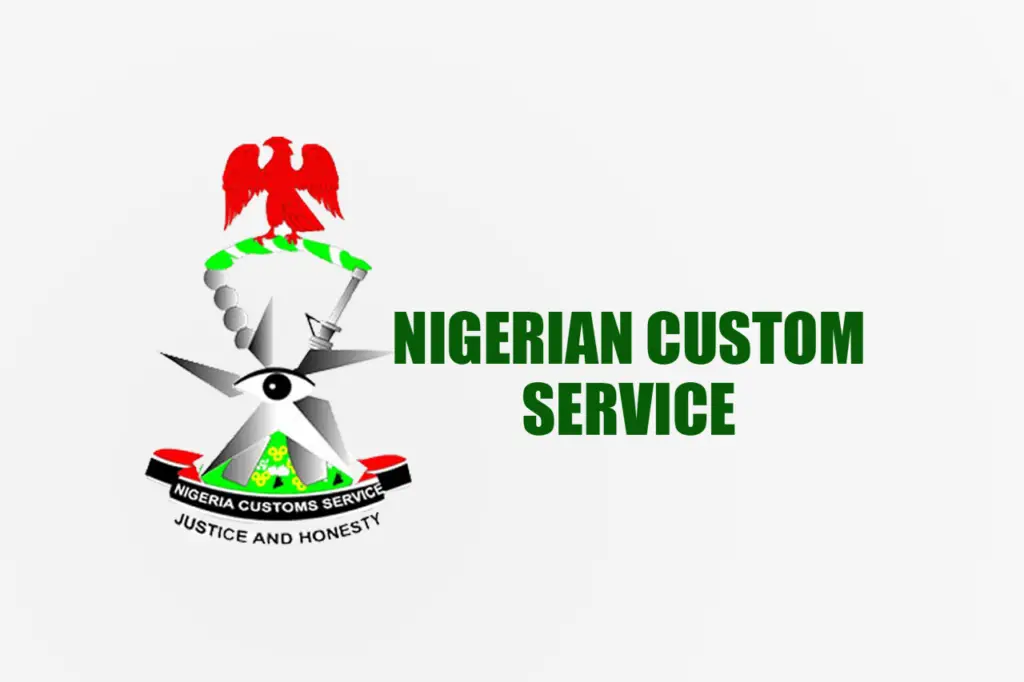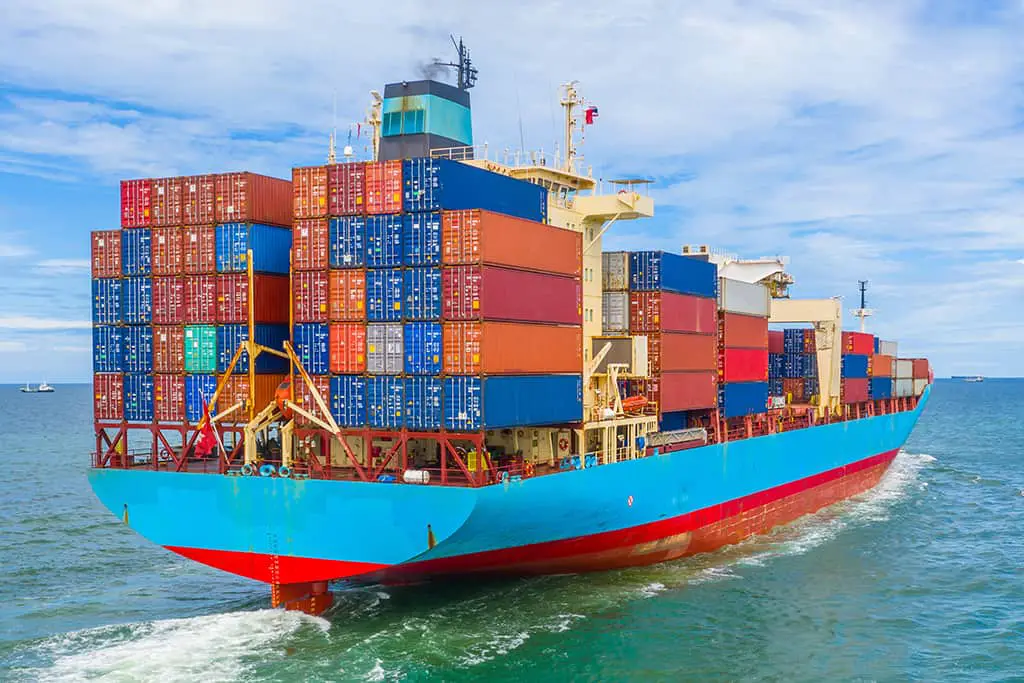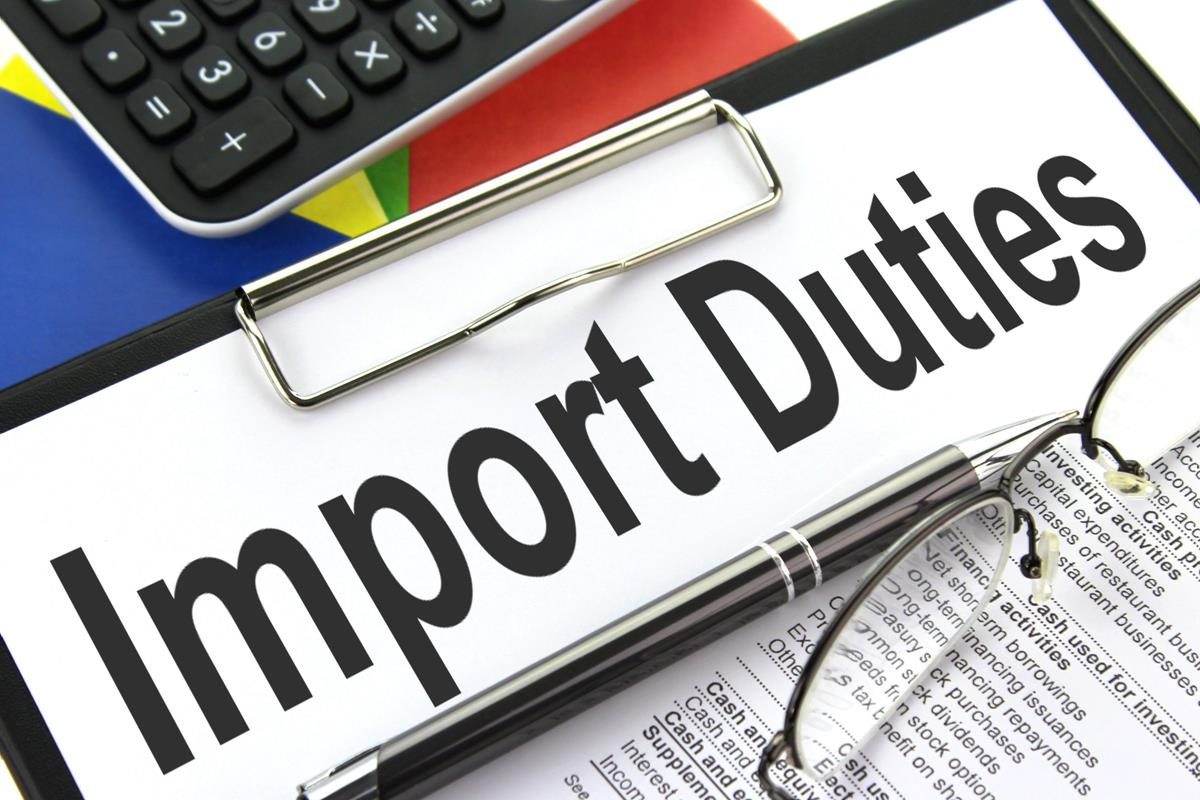Understanding Nigerian Customs Duty and Import Costs: A Comprehensive Guide
If you’ve ever tried to import goods into Nigeria, you’ve probably encountered the infamous customs duty and import costs. Whether you’re a business owner, a freelancer, or just someone looking to buy something from abroad, understanding how these costs work can save you a lot of money, time, and stress. In this article, we’ll break down everything you need to know about Nigerian customs duty and import costs. By the end, you’ll be equipped with the knowledge to navigate the process like a pro.
At The Price, we’re all about helping Nigerians make informed financial decisions. From price comparisons to purchasing guides, we’re here to ensure you get the best value for your money. So, let’s dive into the world of customs duty and import costs in Nigeria.
What Are Customs Duty and Import Costs?
Before we get into the nitty-gritty, let’s start with the basics.
Customs Duty is a tax imposed by the Nigerian government on goods imported into the country. It’s a way for the government to generate revenue and protect local industries by making imported goods more expensive.
Import Costs, on the other hand, refer to the total expenses incurred when bringing goods into Nigeria. These costs include customs duty, shipping fees, handling charges, insurance, and other related fees.
Understanding these costs is crucial because they can significantly affect the final price of the item you’re importing. For example, that $200 gadget you bought online could end up costing you twice as much after customs duty and other fees are added.
Why Are Customs Duties and Import Costs Important?
- Revenue Generation for the Government: Customs duties are a major source of income for the Nigerian government. This revenue is used to fund public services and infrastructure projects.
- Protection of Local Industries: By imposing duties on imported goods, the government encourages Nigerians to buy locally made products. This helps boost the local economy and create jobs.
- Regulation of Imports: Customs duties help regulate the type and quantity of goods coming into the country. This ensures that harmful or illegal items are kept out.
- Consumer Awareness: Knowing the costs involved in importing goods helps you make better purchasing decisions. You’ll know whether it’s cheaper to buy locally or import.
How Are Customs Duties Calculated in Nigeria?
This is where things get a bit technical, but don’t worry—we’ll break it down in simple terms.
Customs duties in Nigeria are calculated based on the Cost, Insurance, and Freight (CIF) value of the goods. The CIF value is the total cost of the item, including shipping and insurance.
Here’s the formula:
Customs Duty = CIF Value × Duty Rate
The duty rate varies depending on the type of goods you’re importing. The Nigerian Customs Service (NCS) uses the Harmonized System (HS) Code to classify goods and determine the applicable duty rate.
For example:
- Essential goods like medicines and educational materials may attract a lower duty rate (e.g., 5%).
- Luxury items like cars and electronics may attract a higher duty rate (e.g., 20% or more).
In addition to customs duty, you may also have to pay:
- Value Added Tax (VAT): A flat rate of 7.5% on the CIF value plus customs duty.
- Supplementary Duty: Applicable to certain goods like alcohol and tobacco.
- Other Fees: These include port charges, handling fees, and administrative costs.
Understanding the Nigerian Customs Service (NCS)

The Nigerian Customs Service (NCS) is the government agency responsible for collecting customs duties and regulating imports and exports. Here’s what you need to know about their role:
- Functions of the NCS:
- Collecting customs duties and other taxes.
- Preventing the importation of prohibited goods (e.g., counterfeit products, illegal drugs, weapons).
- Facilitating legitimate trade by ensuring a smooth clearance process.
- Implementing government policies on trade and tariffs.
- Structure of the NCS:
- The NCS operates through various commands, including seaports, airports, and land borders.
- Each command is headed by a Comptroller who oversees operations in that region.
- Automation of Customs Processes:
- The NCS has introduced technology like the Nigeria Integrated Customs Information System (NICIS II) to streamline customs processes.
- This system allows for online payment of duties and tracking of shipments.
Prohibited and Restricted Goods in Nigeria
Not all goods can be imported into Nigeria. Some items are outrightly prohibited, while others require special permits. Here’s a list of common prohibited and restricted goods:
Prohibited Goods:
- Illegal drugs and narcotics.
- Counterfeit or pirated products.
- Weapons and ammunition (without proper authorization).
- Pornographic materials.
- Used tires.
- Certain types of chemicals and pesticides.
Restricted Goods:
- Pharmaceuticals and medical equipment (require approval from NAFDAC).
- Agricultural products (require permits from the Ministry of Agriculture).
- Telecommunications equipment (require approval from the Nigerian Communications Commission).
- Used vehicles (must not be older than 15 years).
Importing prohibited goods can lead to severe penalties, including fines, confiscation of goods, and even imprisonment. Always check the latest list of prohibited and restricted items on the NCS website before importing.
How to Clear Your Goods at Nigerian Customs
Clearing goods at Nigerian customs can be a daunting process, but understanding the steps involved can make it easier. Here’s a step-by-step guide:
- Prepare Your Documentation:
- Commercial invoice.
- Bill of lading or airway bill.
- Packing list.
- Certificate of origin.
- Form M (for commercial imports).
- Any necessary permits or licenses.
- Submit Your Documents:
- Present your documents to the customs officer at the port of entry.
- Ensure all information is accurate and complete to avoid delays.
- Assessment and Payment of Duties:
- The customs officer will assess the value of your goods and calculate the applicable duties.
- Pay the duties and other fees through the designated payment platform (e.g., NICIS II).
- Physical Examination of Goods:
- Your goods may be physically inspected to verify their contents and value.
- Ensure the goods match the description in your documents.
- Release of Goods:
- Once all duties are paid and the goods are cleared, you’ll receive a release order.
- Present the release order to the shipping company or warehouse to collect your goods.
Common Challenges with Nigerian Customs Duty and Import Costs
Let’s be real—dealing with Nigerian customs can be frustrating. Here are some common challenges you might face:
- Unpredictable Duty Rates: Sometimes, the duty rate applied to your goods may seem arbitrary or higher than expected. This is often due to misclassification or lack of transparency.
- Delays in Clearing Goods: The customs clearance process can be slow, especially if your paperwork is incomplete or incorrect.
- Corruption and Bribery: Unfortunately, some customs officials may demand bribes to expedite the process or reduce the duty payable.
- High Costs: Between customs duty, shipping fees, and other charges, importing goods can be expensive.
- Lack of Information: Many Nigerians are unaware of how customs duties are calculated or what fees to expect. This lack of knowledge can lead to unpleasant surprises.
Tips for Reducing Customs Duty and Import Costs
Now that we’ve covered the challenges, let’s talk about solutions. Here are some practical tips to help you save money and avoid headaches when importing goods into Nigeria:
- Research the HS Code: Before importing, find out the HS Code for your item. This will help you determine the correct duty rate and avoid overpaying.
- Use a Reliable Shipping Company: Some shipping companies have experience with Nigerian customs and can help you navigate the process more smoothly.
- Declare the Correct Value: Under-declaring the value of your goods to reduce customs duty is illegal and can lead to penalties. Always declare the correct value.
- Leverage Exemptions and Concessions: Certain goods, like educational materials and medical supplies, may qualify for duty exemptions or concessions. Make sure to check if your item qualifies.
- Work with a Licensed Customs Agent: A licensed customs agent can help you with the clearance process and ensure that all your paperwork is in order.
- Stay Updated on Policies: Customs regulations and duty rates can change. Stay informed by regularly checking the Nigerian Customs Service website or following reputable news sources.
- Compare Prices: Before importing, compare the total cost (including customs duty) with the price of similar goods available locally. Sometimes, it’s cheaper to buy locally.
Real-Life Examples of Customs Duty Calculations
Let’s look at some examples to give you a better idea of how customs duty works in practice.
Example 1: Importing a Smartphone
- CIF Value: $500
- Duty Rate: 20%
- Customs Duty: $500 × 20% = $100
- VAT: ($500 + $100) × 7.5% = $45
- Total Import Cost: $500 + $100 + $45 = $645
Example 2: Importing a Laptop
- CIF Value: $1,000
- Duty Rate: 10%
- Customs Duty: $1,000 × 10% = $100
- VAT: ($1,000 + $100) × 7.5% = $82.50
- Total Import Cost: $1,000 + $100 + $82.50 = $1,182.50
As you can see, the total cost of importing goods can add up quickly. That’s why it’s important to factor in these costs before making a purchase.
Common Mistakes to Avoid When Importing Goods
Many Nigerians make costly mistakes when importing goods. Here are some common pitfalls to avoid:
- Incomplete or Incorrect Documentation:
- Missing or inaccurate documents can delay the clearance process. Double-check all paperwork before submission.
- Under-Declaring the Value of Goods:
- Under-declaring the value to reduce customs duty is illegal and can lead to penalties or seizure of goods.
- Ignoring Prohibited and Restricted Items:
- Importing prohibited goods can result in fines or legal action. Always check the latest regulations.
- Not Factoring in All Costs:
- Many people forget to include additional fees like handling charges, storage fees, and demurrage (penalty for delayed clearance).
- Using Unreliable Shipping Companies:
- Some shipping companies may cut corners or lack experience with Nigerian customs. Choose a reputable company with good reviews.
How to Track Your Shipment and Duties

Tracking your shipment and duties is essential to avoid surprises. Here’s how to do it:
- Tracking Your Shipment:
- Most shipping companies provide a tracking number that allows you to monitor the status of your shipment online.
- Use platforms like Track-Trace or the shipping company’s website to track your goods.
- Tracking Your Customs Duties:
- The NCS NICIS II platform allows you to track the status of your customs duties and payments.
- You can also visit the customs office at the port of entry for updates.
Recent Changes in Nigerian Customs Policies
Customs policies and duty rates can change frequently. Here are some recent updates (as of 2025) that you should be aware of:
- Increase in Duty Rates for Luxury Goods:
- The government has increased duty rates for luxury items like cars, electronics, and designer clothing to encourage local production.
- Introduction of E-Customs:
- The NCS has launched an e-customs platform to automate and simplify the clearance process.
- Crackdown on Illegal Imports:
- The NCS has intensified efforts to combat smuggling and illegal imports, especially for prohibited goods.
- Reduction in Duty Rates for Essential Goods:
- To support the economy, the government has reduced duty rates for essential goods like food, medicines, and educational materials.
Case Study: Importing a Car into Nigeria

Importing a car is one of the most common and complex processes Nigerians face. Here’s a step-by-step breakdown:
- Check the Age Limit:
- Used cars must not be older than 15 years.
- Calculate the Duty:
- Cars attract a duty rate of 20% of the CIF value.
- Additional fees include VAT, ECOWAS levy, and port charges.
- Prepare Your Documents:
- Bill of lading.
- Commercial invoice.
- Form M.
- Certificate of origin.
- Clear the Car at the Port:
- Pay the applicable duties and fees.
- Undergo a physical inspection.
- Register the Car:
- After clearing customs, register the car with the appropriate authorities and obtain a license plate.
Frequently Asked Questions (FAQs)
1. Can I avoid paying customs duty in Nigeria?
No, customs duty is mandatory for most imported goods. However, some items may qualify for exemptions or concessions.
2. How long does it take to clear goods at Nigerian customs?
The clearance process can take anywhere from a few days to several weeks, depending on the complexity of the shipment and the completeness of your paperwork.
3. What happens if I can’t pay the customs duty?
If you can’t pay the customs duty, your goods may be seized or auctioned by the Nigerian Customs Service.
4. Can I negotiate customs duty?
No, customs duty rates are fixed by the government and are not negotiable. However, working with a licensed customs agent can help ensure that you pay the correct amount.
5. Are there duty-free shops in Nigeria?
Yes, some airports in Nigeria have duty-free shops where you can purchase goods without paying customs duty.
Resources for Further Reading
To stay updated on Nigerian customs duty and import costs, check out these resources:
- Nigerian Customs Service (NCS) Official Website: www.customs.gov.ng
- Federal Inland Revenue Service (FIRS): www.firs.gov.ng
- NAFDAC: www.nafdac.gov.ng
- The Price Blog: www.theprice.ng
Final Thoughts
Navigating Nigerian customs duty and import costs can be challenging, but with the right knowledge and preparation, you can save money and avoid unnecessary stress. At The Price, we’re committed to helping you make informed decisions about your money.
Whether you’re importing goods for personal use or for your business, understanding how customs duty works is essential. By following the tips and advice in this guide, you’ll be well-equipped to handle the process like a pro.
Remember, the key to successful importing is research, preparation, and staying informed. So, the next time you’re thinking of buying something from abroad, take the time to calculate the total cost—including customs duty—and compare it with local prices. You might just find that buying locally is the better option.
Got more questions about customs duty or import costs? Drop a comment below, and we’ll be happy to help!



Leave a Comment